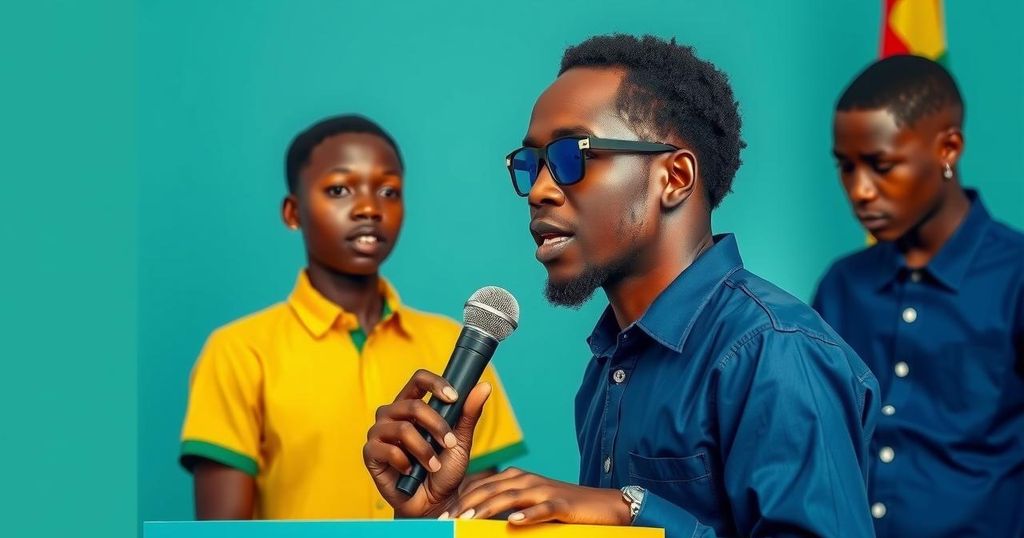Young Ghanaian Voters Seek Change Amid Limited Options in Presidential Election

Young Ghanaians view the presidential election as a means to escape economic hardship, yet their choices are constrained. Vice President Bawumia and former President Mahama are the main contenders, each promising solutions to the nation’s crises. Voter sentiment reflects frustration towards the current government and apprehension about electoral integrity, emphasizing the need for transparency amid pressing national challenges.
In Ghana, young voters perceive the upcoming presidential election as a potential avenue to escape their enduring hardships. As many first-time voters prepare to make their voices heard, their prospects for transformative change appear limited. Despite a multitude of 12 candidates vying for the presidency, the contest is primarily viewed as a rivalry between Vice President Mahamudu Bawumia of the ruling New Patriotic Party and former President John Mahama from the opposing National Democratic Congress.
The ongoing economic turmoil has led citizens, like Joseph Antwi, to express frustration with the current administration, citing broken promises and a dire cost-of-living crisis. Bawumia pledges to build on the existing government’s initiatives to stabilize the economy, while Mahama calls for a fundamental reset in governance and critical sectors. The atmosphere leading up to the election has been charged with political rallies and discussions surrounding pressing issues, including illegal gold mining, unemployment, and allegations of electoral improprieties that threaten the nation’s democratic integrity.
As these young voters prepare to cast their ballots on Saturday, the hope for substantial improvement remains uncertain, given their limited choices and the historical context of Ghana’s political landscape.
It is essential for the emerging leadership to address these compounded challenges and restore faith in the democratic process, which is vital for the future development of Ghana.
Ghana is experiencing a heightened cost-of-living crisis, amidst concerns over high public debt, inflation, and a struggling currency. Young voters represent a significant demographic in the upcoming presidential election, which is expected to determine the direction of the country as it grapples with various pressing issues. The election features a competitive landscape, mainly revolving around the two major political parties, the New Patriotic Party and the National Democratic Congress, both of which aim to seize voter support amidst skepticism towards the ruling government. The electoral process is critical as it faces challenges such as allegations of voting manipulation, which could have implications for the nation’s democratic stability, particularly in the context of West Africa, where coups have threatened governance.
In conclusion, the upcoming presidential election in Ghana is seen as a potential solution to the ongoing hardships faced by young voters. However, their options for political change are limited due to a predominantly two-party system and growing concerns about electoral fairness. Candidates Mahama and Bawumia are urging voters to support their respective visions for economic recovery and social reform. The outcome of the election may very well determine not only the future of young Ghanaians but also the integrity of the country’s democratic institutions amid rising challenges.
Original Source: apnews.com








